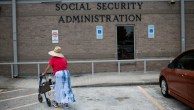[ds]
Everson v. Board of Education (1947)
| Majority: | Minority: |
| Black | Rutledge |
| Vinson | Burton |
| Reed | Jackson |
| Murphy | Frankfurter |
| Douglas |
The controversy in Everson involved a New Jersey statute that allowed local school boards to reimburse parents for the cost of busing their children to school. The law allowed these reimbursements for transportation to public and private schools, including religious institutions. A taxpayer in a New Jersey town sued, arguing that the New Jersey Constitution as well as the U.S. Constitution prohibited the town from reimbursing parents who sent their children to religious schools because, the taxpayer argued, such a policy effectively subsidized religious instruction. The taxpayer originally brought his suit in a New Jersey court, but after he lost his suit in the highest court of the state, he appealed to the U.S. Supreme Court. There, he argued that the town’s reimbursement policy violated the Establishment Clause. The Everson case thus presented the Supreme Court with the opportunity to determine whether the Establishment Clause applied to state and local governments.
Although the high court split 5-4 in ruling that the reimbursements were indeed constitutional, all nine members agreed, with little discussion, that the Establishment Clause applied not only to the federal government but also to state and local governments. In previous cases, the court had decided that the Free Exercise Clause applied to the states, reasoning that the 14th Amendment’s Due Process Clause prohibits the states from depriving people of certain unspecified liberties, including the right to free exercise of religion. (See the Pew Forum’s A Delicate Balance: The Free Exercise Clause and the Supreme Court.) Citing one of these cases, Murdock v. Commonwealth of Pennsylvania, the court found that the Establishment Clause also extended to state and local governments.
[n]
But while the justices agreed that the Establishment Clause created a wall of separation that applied to both the states and the federal government, they disagreed sharply on how this concept applied to the facts at hand. The five-justice majority, in an opinion written by Justice Hugo Black, held that the New Jersey bus subsidies did not violate the Establishment Clause because the subsidies primarily benefited the parents and schoolchildren, not the religious schools. In addition, the majority argued, the government provided the subsidies to all parents who bused their children to school, not just those parents who sent their children to religious schools. Thus, the majority concluded, the subsidies were a generally available benefit, just like police or fire protection, which had always been available to religious groups and individuals.
The dissenters, led by Justices Wiley Rutledge and Robert Jackson, argued that the subsidies were unconstitutional because the Establishment Clause categorically prohibits the government from funding religious instruction, even when the government does so indirectly by reimbursing parents rather than the religious schools themselves. This disagreement in Everson over the precise size and shape of the wall of separation would arise in many cases in the coming years.




